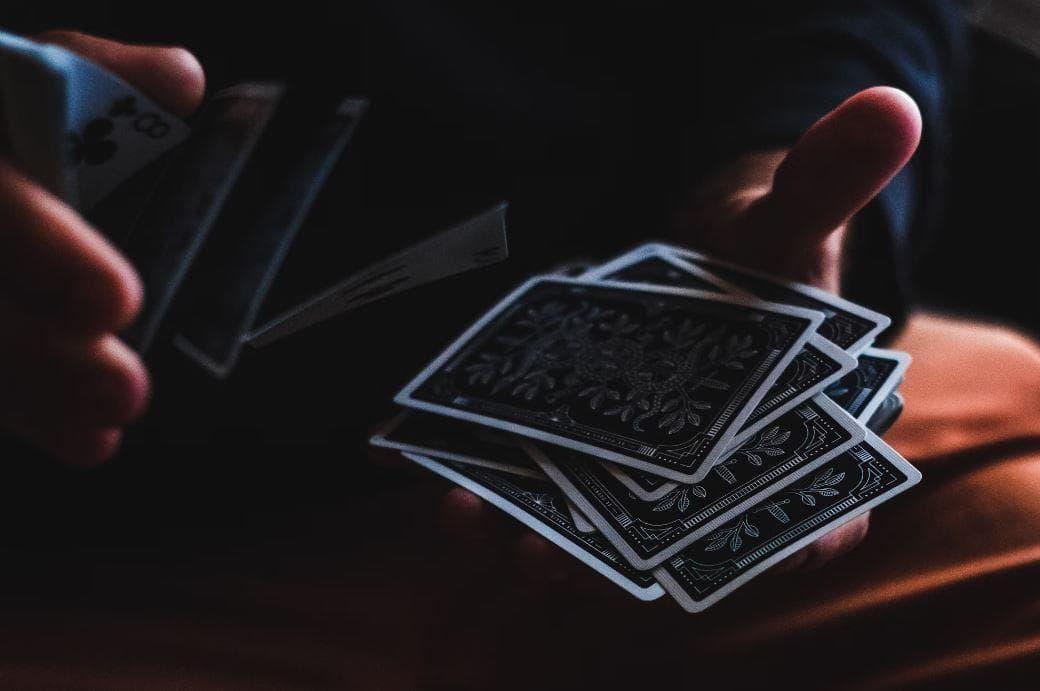Turning the Tables: Mastering the Poker Turn Card
The Turn, a pivotal juncture in the game of poker, unfolds with the unveiling of the fourth community card. This critical moment injects a surge of anticipation and uncertainty into the proceedings, as players eagerly await the revelation of this potentially game-changing card.
With the turn card now in play, players are presented with a wealth of new information to digest and analyse. This additional piece of the puzzle can significantly alter the landscape of the hand, reshaping players’ perceptions of their own holdings and those of their opponents.
For some players, the turn brings a rush of excitement as they find their hands greatly enhanced by the new community card. Whether it’s completing a draw, improving to a strong pair, or even creating potential for a full house or flush, the turn can elevate a previously marginal hand to one with considerable promise. It’s a moment of opportunity as players contemplate the possibilities and weigh their options for the remainder of the hand.
Conversely, the turn can also serve as a sobering wake-up call for those whose hands fail to improve as hoped. As the turn card is revealed, some players may find themselves facing disappointment as their once-promising holdings are dashed against the rocks of reality. It’s a humbling reminder of the fickle nature of the game and the need for adaptability in the face of adversity.
Yet, it is precisely this element of unpredictability that makes the turn such a captivating stage in the game of poker. With the potential for dramatic swings in fortune, every turn is a crucible of skill and strategy, where players must draw upon their wits and intuition to navigate the complexities of the game.
Indeed, the significance of the turn cannot be overstated, as it serves as a critical pivot point in the hand, shaping the remainder of the game and influencing the actions of players at the table.
For some, the turn represents a golden opportunity to seize control of the hand and assert their dominance. For others, it is a moment of reckoning, where the strength of their holdings is put to the test and their ability to adapt is laid bare for all to see.
In the end, the turn stands as a testament to the enduring allure of poker, where every card has the power to change the course of history and every decision carries the weight of potential victory or defeat.
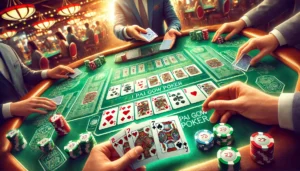
Mastering Pai Gow Poker: A Relaxed and Strategic Casino Game
Mastering Pai Gow Poker: A Relaxed and Strategic Casino Game If you’re seeking a slower-paced casino game than Craps or Blackjack and wish to spend more time gambling without significant financial risk, Pai Gow Poker might be the perfect fit. With its blend of traditional poker rules and unique twists, this game offers a relaxed

Slot Review | Kong Wonder Wilds by Inspired Gaming Slot Review
Slot Review | Kong Wonder Wilds by Inspired Gaming Slot Review Get ready to embark on a wild adventure deep into the heart of the jungle with Inspired Gaming’s latest slot release, Kong Wonder Wilds. This thrilling slot game takes you on a journey through the untamed jungle where you’ll encounter exciting bonus features and

Stock Market Live: New Live Game Review by Evolution Gaming
Stock Market Live: Game Review for New Game by Evolution Gaming Experience the thrill of the stock market in real-time with the new live dealer stock trading game Stock Market Live by Evolution Gaming. A live csino game available at Bally Casino in the UK. This innovative game brings the excitement of trading to your fingertips, offering players
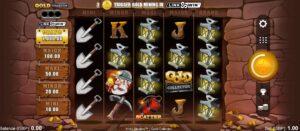
Gold Collector Hyper Hold™: Game Review All41 Studios and Microgaming
Gold Collector Hyper Hold™: Game Review All41 Studios and Microgaming “Gold Collector Hyper Hold™” is a thrilling new slot game developed by Microgaming in collaboration with All41 Studios. Set in a world of treasure and adventure, this game invites players to embark on a quest for gold with its exciting features and immersive gameplay. Game
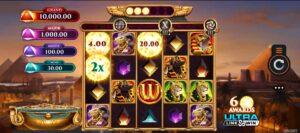
Links of Ra 2: Pyramids of Fortune | Unveiling the Ultra Link & Win
Links of Ra 2: Pyramids of Fortune | Unveiling the Ultra Link & Win “Links of Ra II: Ultra Link & Win” takes players back into the mysterious world of ancient pyramids, offering an exhilarating gaming experience filled with excitement and opportunities to win big. With a bet range from 20p to £5.00 and 40
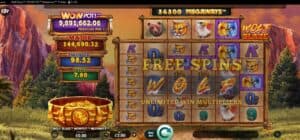
Embark on a Thrilling Adventure with Wolf Blaze WowPot Megaways
Embark on a Thrilling Adventure with Wolf Blaze WowPot Megaways Step into the wilderness of the Mid West and prepare for an exhilarating journey where fortunes await in the warm shadows of the mountains. Wolf Blaze WowPot Megaways is a classic wolf-themed game that promises an exciting player experience, featuring popular features and the massive win potential
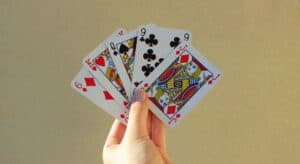
The Level Playing Field: Exploring Suit Equality in Poker
The Level Playing Field: Exploring Suit Equality in Poker In the world of poker, where every card counts and every decision matters, understanding the hierarchy of suits is essential. Unlike some other card games like contract bridge or ninety-nine, where the suit of a card can significantly impact gameplay, poker operates under a different principle:
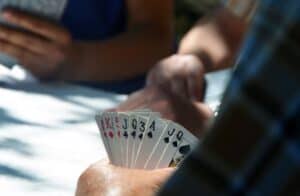
Navigating the Poker Table: Understanding Positions
Navigating the Poker Table: Understanding Positions In the dynamic world of poker, where every hand presents a new challenge, your position at the table plays a crucial role in shaping your strategy. While you may occupy the same physical seat throughout the game, your relative position in terms of order of play changes with each
Frequently Asked Questions The Turn Card In Poker (FAQs):
1. What is the turn card in poker?
The turn card is the fourth community card dealt face-up on the table, following the flop and preceding the river, in games like Texas Hold’em and Omaha.
2. When is the turn card dealt?
The turn card is dealt after the completion of the second round of betting, known as the flop betting round, and before the commencement of the third round of betting.
3. What is the significance of the turn card?
The turn card provides additional information and potentially changes the strength of players’ hands, influencing betting decisions and strategies for the remainder of the hand.
4. How does the turn card impact players’ strategies?
The turn card can significantly impact players’ strategies by altering the strength of their hands, creating new drawing opportunities, or completing potential strong hands like straights, flushes, or full houses.
5. Can players bluff on the turn?
Yes, players can bluff on the turn by betting or raising with weaker holdings to represent strength and pressure opponents into folding better hands. Bluffing on the turn requires a good understanding of opponents’ tendencies and the ability to construct a believable narrative with one’s betting actions.
6. What should players consider when evaluating the turn card?
When evaluating the turn card, players should consider the texture of the board, the strength of their hand relative to the community cards, their opponents’ likely holdings and tendencies, and the potential impact of the turn card on future betting rounds.
7. How does the turn card affect the dynamics of the hand?
The turn card can dramatically alter the dynamics of the hand by shifting the balance of power among players, creating new opportunities for aggression or deception, and influencing decisions about whether to continue in the hand or fold.
8. What if a player misses their draw on the turn?
If a player misses their draw on the turn and fails to improve their hand, they may choose to check and see the river card for free, fold to further aggression from opponents, or attempt to bluff their way to victory by representing a strong hand through aggressive betting.
9. What strategies can players employ to maximize success on the turn?
To maximize success on the turn, players should carefully analyze the implications of the turn card, consider their opponents’ likely holdings and tendencies, vary their betting sizes and frequencies strategically, and adapt their strategies based on the specific dynamics of the hand and table.
10. How does the turn card influence the overall outcome of the hand?
The turn card plays a pivotal role in shaping the outcome of the hand by influencing betting decisions, altering the strength of players’ hands, and setting the stage for the final betting round and showdown on the river. It can determine who wins or loses the pot and ultimately impacts the overall dynamics of the game.

